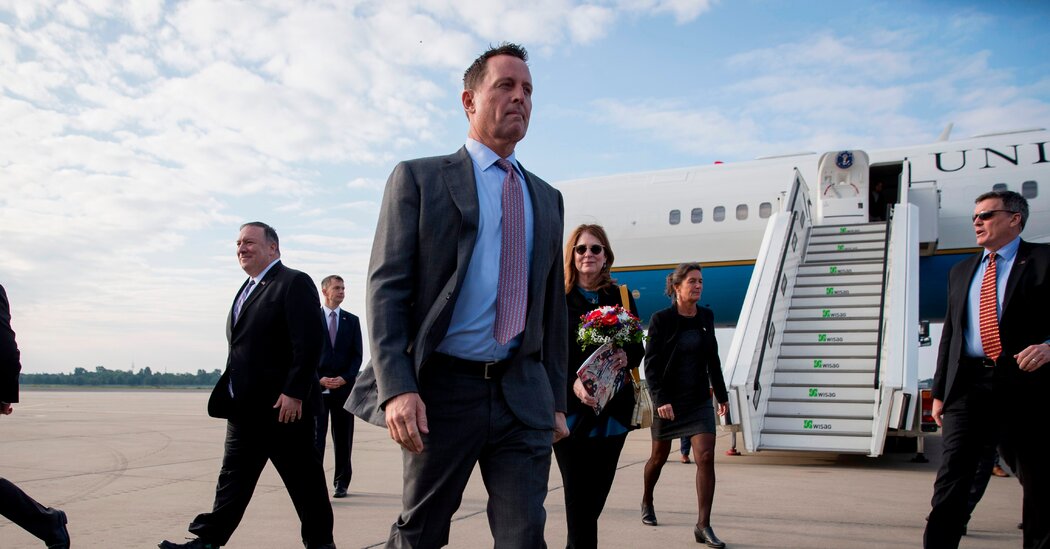The Impact Of Climate Change On Employment In Africa: Challenges And Opportunities

Table of Contents
Challenges of Climate Change on African Employment
Increased Vulnerability of Climate-Sensitive Sectors
Climate change disproportionately affects Africa's climate-sensitive sectors, jeopardizing the livelihoods of millions. Agriculture, fishing, and tourism – crucial employment drivers – are particularly vulnerable. Droughts, floods, and desertification severely impact agricultural yields, leading to food insecurity and widespread unemployment. Ocean acidification and overfishing, exacerbated by climate change, threaten the fishing industry, displacing fishers and impacting food security. Extreme weather events damage tourist infrastructure, deterring visitors and leading to job losses in the hospitality sector.
- Loss of livelihoods: Millions depend on climate-sensitive sectors; their livelihoods are directly threatened by climate change.
- Displacement of workers: Farmers and fishers may be forced to abandon their land or fishing grounds due to environmental degradation.
- Reduced income: Decreased agricultural yields and tourism revenue lead to reduced income and poverty.
- Food insecurity: Climate change-induced food insecurity fuels social unrest, affecting workforce productivity and stability.
Increased Frequency and Severity of Extreme Weather Events
The increased frequency and intensity of extreme weather events, such as droughts, floods, storms, and heatwaves, pose further significant challenges to African employment. These events damage critical infrastructure, disrupt businesses, and reduce worker productivity. Damaged roads and bridges hinder access to workplaces, while business closures due to flooding or storms lead to temporary and permanent job losses. Extreme heat reduces workdays and increases health issues, impacting workforce participation rates.
- Infrastructure damage: Extreme weather events damage roads, bridges, power grids, and other infrastructure, hindering access to work.
- Business disruption: Businesses, particularly small and medium enterprises (SMEs), are highly vulnerable to disruptions caused by extreme weather.
- Lost productivity: Extreme heat, storms, and other events reduce workdays and overall productivity.
- Heat stress and worker health: Increased heat stress leads to decreased productivity and health problems, impacting workforce participation.
Climate Migration and its Impact on Employment
Climate-induced displacement leads to increased competition for jobs and resources in already strained areas. People forced to migrate from rural areas due to drought or land degradation often end up in overcrowded urban centers, exacerbating existing challenges. This influx increases pressure on urban infrastructure and services, leading to a rise in informal employment and potential social unrest.
- Increased urbanization: Climate migration contributes to rapid urbanization, straining urban infrastructure and resources.
- Strain on urban infrastructure and services: Overcrowded cities face shortages of housing, water, sanitation, and healthcare.
- Informal employment growth: Migrants often find work in the informal sector, characterized by low wages and lack of social protection.
- Competition for jobs: Increased competition for limited jobs can lead to social tensions and instability.
Opportunities for Green Job Creation in Africa
Investment in Renewable Energy
The transition to renewable energy sources presents significant opportunities for green job creation in Africa. Investment in solar, wind, hydro, and geothermal energy sectors can generate jobs across the value chain. This includes manufacturing, installation, maintenance, research and development, and policy development.
- Renewable energy jobs: Creating jobs in manufacturing, installation, maintenance, and operation of renewable energy systems.
- Green jobs: Promoting environmentally friendly employment opportunities across various sectors.
- Sustainable energy: Investing in renewable energy sources to ensure a sustainable energy future.
Climate-Smart Agriculture
Sustainable farming practices are crucial for enhancing resilience and creating employment opportunities. Investing in drought-resistant crops, efficient irrigation systems, and sustainable land management can increase agricultural productivity and create jobs in rural areas. Agroforestry, integrating trees and shrubs into farming systems, further boosts biodiversity and offers additional income streams.
- Climate-smart agriculture: Adopting farming practices that are resilient to climate change and enhance food security.
- Sustainable farming: Promoting environmentally friendly agricultural techniques that protect natural resources.
- Drought-resistant crops: Developing and implementing drought-resistant crop varieties to ensure food production.
Climate Change Adaptation and Resilience Initiatives
Projects focused on climate change adaptation and disaster risk reduction offer substantial employment potential. Developing early warning systems, improving disaster preparedness, investing in climate-resilient infrastructure, and implementing community-based adaptation projects can create jobs and enhance resilience.
- Climate change adaptation: Implementing strategies to reduce vulnerability to climate change impacts.
- Disaster risk reduction: Investing in measures to minimize the risks and impacts of natural disasters.
- Climate resilience: Building communities’ capacity to cope with climate change impacts.
Conclusion
Climate change poses significant challenges to employment in Africa, impacting climate-sensitive sectors, increasing the frequency and severity of extreme weather events, and driving climate migration. However, the transition to a green economy offers considerable opportunities for job creation in renewable energy, climate-smart agriculture, and climate adaptation initiatives. Understanding the impact of climate change on African employment is crucial. By supporting initiatives for green job creation and climate adaptation, we can mitigate the negative effects and unlock the continent's potential for sustainable economic development. Learn more and get involved in tackling the challenges and harnessing the opportunities presented by climate change impact on African employment.

Featured Posts
-
 Holden And Daly Daughters Survival Challenge A New Tv Show
Apr 26, 2025
Holden And Daly Daughters Survival Challenge A New Tv Show
Apr 26, 2025 -
 Phoebe Gates More Than A Nepo Baby Navigating Privilege And Pressure
Apr 26, 2025
Phoebe Gates More Than A Nepo Baby Navigating Privilege And Pressure
Apr 26, 2025 -
 Usetrete Na Velikonocich Prakticke Rady Pro Obdobi Zdrazovani
Apr 26, 2025
Usetrete Na Velikonocich Prakticke Rady Pro Obdobi Zdrazovani
Apr 26, 2025 -
 Liev Schreibers Daughter Paris Modeling Debut Sparks Nepo Baby Debate
Apr 26, 2025
Liev Schreibers Daughter Paris Modeling Debut Sparks Nepo Baby Debate
Apr 26, 2025 -
 Federal Agencys Survey On Jewish Affiliation At Columbia And Barnard Details And Reactions
Apr 26, 2025
Federal Agencys Survey On Jewish Affiliation At Columbia And Barnard Details And Reactions
Apr 26, 2025
Latest Posts
-
 Bangkok Post The Fight For Transgender Equality Continues
May 10, 2025
Bangkok Post The Fight For Transgender Equality Continues
May 10, 2025 -
 Discussions On Transgender Equality Intensify Bangkok Post Reports
May 10, 2025
Discussions On Transgender Equality Intensify Bangkok Post Reports
May 10, 2025 -
 Experiences Of Transgender Individuals Under Trumps Executive Orders
May 10, 2025
Experiences Of Transgender Individuals Under Trumps Executive Orders
May 10, 2025 -
 Bangkok Post Reports On The Mounting Pressure For Transgender Rights
May 10, 2025
Bangkok Post Reports On The Mounting Pressure For Transgender Rights
May 10, 2025 -
 The Impact Of Trumps Presidency On Transgender Rights
May 10, 2025
The Impact Of Trumps Presidency On Transgender Rights
May 10, 2025
